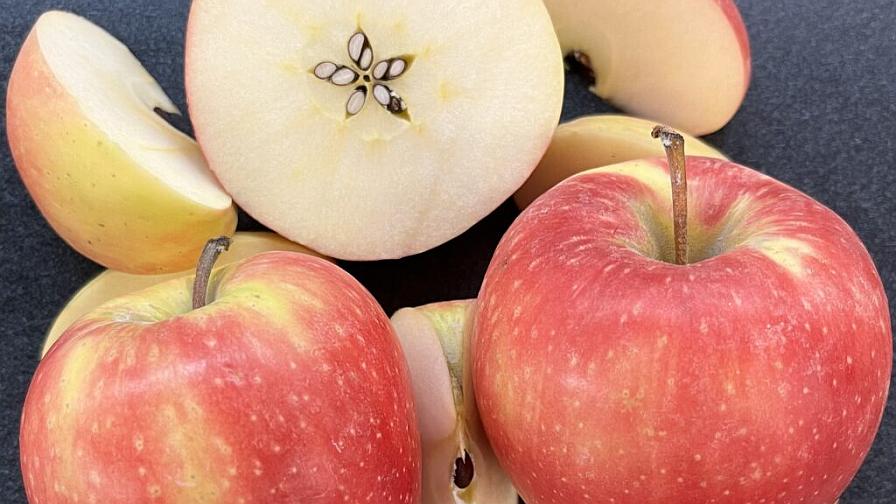Bobby Barben Bags 2013 Citrus Achievement Award
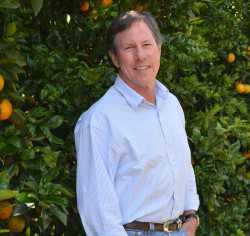
It is no surprise that recent winners of the annual Florida Grower Citrus Achievement Award, sponsored by Chemtura AgroSolutions, were honored for work on the front lines in the fight to survive HLB (AKA, citrus greening). This year is no exception, as Bobby Barben has been selected as the honoree for his efforts to promote research on the disease that threatens the viability of Florida’s signature industry.
Barben’s family has grown citrus for generations and is currently based in Avon Park under the Barben Fruit Company name, along with a number of other entities. Barben serves as chairman of the Research Management Committee and is on the Board of Directors of the Citrus Research and Development Foundation (CRDF), which was established to help manage the massive effort of seeking solutions to HLB and other pests and diseases.
Renewed Urgency
This year’s massive fruit drop has put an exclamation point on how important the unprecedented research push is to find solutions to HLB. While a number of factors might be to blame, many believe HLB at least played a part in the drop.
“Greening doesn’t like any sort of stresses like it being too hot or cold or too wet or dry,â€� says Barben. “The complex of greening mixed with anything else makes for a bad combination.Â
“I’ll be honest, it has been a roller coaster ride. I’ve had some down days and it is really hard to know where we are going with all this. But, I believe in my heart we will find a game changer. That’s what we are looking for.
“Can we slow down the psyllid’s ability to transmit the disease? Or, it could be an anti-microbial peptide that provides some protection against the bacteria. Well into the future, it could be a genetically modified tree.�
Barben says any of these projects could hit and provide a more sustainable path for the state’s citrus growers.
Currently, more than 100 research projects are being funded by CRDF and most have their sights on HLB. Nearly $20 million is being poured into research ever year, so it is little surprise growers expect results.
“Nobody is as impatient as I am,� he says. “If I have rust mites, I am going to spray tonight or tomorrow and that takes care of the problem. With greening, it is a lot more difficult of a problem and there is a real art to the science being conducted. Several of these projects are just to get us to the next phase of study toward our ultimate goal. I call the scientists working on all these projects the real ‘rock stars’ in this effort and have confidence they’ll find things to help us.�
Barben says the urgency is increasing because many growers are facing some very difficult economic questions about the viability of groves heavily infected with HLB. In groves that are barely breaking even, the decision to keep pouring money into psyllid control and aggressive nutrition programs gets much more difficult, especially for smaller growers.
The Search For A Citrus Game Changer
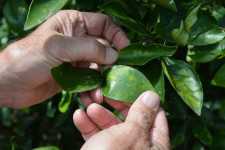
Sometimes the idea that “everybody is in this togetherâ€� can come off a bit cliché, but HLB is forcing the issue. “There is always talk about working together,â€� says Barben. “Well, now we really are. The juice plants understand it is important that we stay in business, and us growers know it is more important than ever the processors stay in business.Â
“We can’t afford to begin losing our processing infrastructure. When plants close their doors, they don’t reopen.�
The threat to infrastructure is real. A recent long-term study released by the Florida Department of Citrus has suggested a best case scenario based on high tree replacement put production at 136.5 million boxes by 2022-2023. The worst case outcome (high tree loss with low replacements) put production at only 82.2 million boxes by 2022-2023.
Recently, Coca-Cola Co. announced a $2 billion investment in Florida’s citrus industry illustrating the need to boost plantings and keep the juice flowing. Partnering with Cutrale Citrus Juices and Peace River Citrus Products, Coca-Cola’s investment will enable the growers to plant 25,000 acres of orange trees.
Other recent news of forces joining the fight was the Florida legislature’s approval of $9.5 million in funds as part of the Florida Department of Agriculture’s budget. The funds will be directed by the CRDF, $8 million of which is earmarked for HLB.
What Can Be Done Now
While growers wait for larger breakthroughs, Barben says psyllid control is paramount to help slow the spread of HLB. “If I could roll back the clock and do one thing differently in response to greening, I would have been more aggressive with our psyllid control early on,� he says. “I think the next big thing is going to be more border sprays to control the psyllids. The edges are eating my middles. If I can do a little better job protecting my borders, I believe I’ll do a better job protecting all my groves.�
Barben is participating in a citrus health management area (CHMA), which is being coordinated by Steve Farr, production manager for Ben Hill Griffin Citrus. “Steve does a great job with the CHMA. He has really meant a lot to our operation,� he says. “We used to see all the psyllid frass in trees, hanging like icicles. We don’t see those anymore and our psyllid counts are very low, so our spray programs are working.�
Barben credits Harold McTeer for helping to establish a strong nutrition program in the family’s groves even before HLB was on the scene. “He got us on a really good program, so we’ve not changed a lot. Some of our groves continue to do really well. Others are not as pretty, but I do believe a good nutritional program is very important.�
Given this year’s fruit drop and the relentless nature of the psyllid, Barben hopes growers don’t become complacent. “I remember my hair was on fire when I found my first greening-infected tree in 2007,� he says. “If I find a greening tree today, well, my hair can’t be on fire all the time.
“Hopefully, growers won’t become too disheartened when infection levels get higher. The grower might think these psyllids are going to be back in few a weeks, why should I keep spraying for them over and over? The problem is, for some growers, this is becoming an economic decision, which underscores our need for a game changer.�
Sourcing Solutions For Citrus
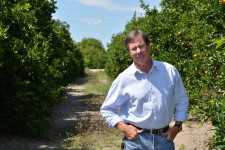
When a breakthrough comes, there’s a good chance it will be funded by the CRDF. The projects are many and just a few include a cost-effective anti-bacterial compound aimed at driving HLB out of trees, RNAi technology to disrupt the psyllid’s ability to feed, genetics, or things as simple as ground coverings to repel psyllids or kaolin clay to make leaves too slippery for feeding.
Barben says there is a big push now under way to find a rootstock that provides some level of resistance to HLB. While a rootstock could be a game changer, it also is a longer-term proposition.
“I believe one of the strengths of the CRDF is the diversity of knowledge,� says Barben. “It is represented by some great academic, legal, and accounting minds. And, we have growers represented in important decision-making areas. It is a really strong cross section of people.
“It is very good to have Dr. Harold Browning serving as the foundation’s chief operating officer because he knows the science and our industry. Dr. Tom Turpen serves as our program manager and runs our scientific advisory board, which is made up of people from across the U.S. with a broad range expertise.
“All of this knowledge allows us to better sort through all of the proposed research projects on the table. We are not necessarily looking for projects that state this is what needs to be done, but ones that are most likely to accomplish what it said it would accomplish.�
Barben adds he can’t give enough credit to the FDOC’s box tax committee for having the foresight to know the level of research dollars that would be required to fight HLB. “Thank goodness for those box tax guys like Peter McClure, Jim Snively, Jerry Newlin, Bill Barber, and other production managers who hit the ground running because they saw what was coming. They got the National Academy of Sciences involved and went to the FDOC and directed more than $15 million to fight this disease. At the time, I couldn’t even imagine how they got that done, but we are very fortunate they did.�
Seeking A Sustainable Path
Barben believes enough in the future that he is planting resets and putting in new blocks of trees. New groves are going in with an eye toward higher densities and more intensive water and fertility management. He says the goal must be getting trees to provide a return on investment earlier than traditional plantings of the past.
“I told my brother we have to forget what we know about growing citrus,� he says. “We must gain production efficiencies and move forward with an open mind and find ways to replace trees in a sustainable way.
“We have to do all of this in an economic framework where growers —Barben Fruit Company included — can make enough money to keeping growing and replanting trees; the plants make enough to keep processing; and the Moms can afford to buy orange juice in the store.�
Citrus Peers Shout Out
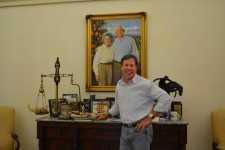
Here’s what some of Bobby Barben’s fellow citrus industry folks have to say about his selection as this year’s Achievement Award winner.
Vic Story, The Story Companies and 2012 Citrus Achievement Award winner
“Bobby is very passionate about his service as chairman of the Citrus Research Management Committee. He knows how serious HLB is, and if we fail to find answers soon, the citrus industry in Florida will look very different in the future. He doesn’t care if he’s politically correct. He wants results!�
Ray Royce, Executive Director, Highlands County Citrus Growers Association
“Bobby has provided selfless service to our industry for years. His tireless involvement on a wide range of fronts should serve as a shining example to others that proactive participation with industry organizations can, and will, make a huge difference in our and the next generation of Florida citrus growers’ futures.�
Dr. Harold Browning, Chief Operating Officer, CRDF
“As a board member of the CRDF, Bobby has provided leadership to the direction of response to HLB, and in assisting in the guidance of how grower and other
dollars are invested in short-and long-term solutions to this serious disease. He has served as chair of the Research Management Committee, the CRDF group, which provides review of ongoing research and in-depth evaluation of new project pre-proposals and proposals. CRDF utilizes a peer evaluation process to assist in evaluating the science contained in research project proposals, and Bobby goes well above expectations in studying each proposal in depth, referring to published background and posing questions before projects are considered for approval.�
A Word From The Sponsor
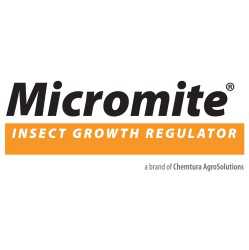
Congratulations to Bobby Barben, the 2013 Citrus Achievement Award winner. Dedication, hard work, and a vision for the future are what true leaders in the citrus industry exemplify time and time again. It is this unmistakable passion for what they do that makes them such an inspiration to those around them. The citrus industry has advanced and overcome significant challenges as a direct result of these devoted individuals. A proven asset to us all, the citrus community is a better place because of them.
Chemtura AgroSolutions applauds Bobby for his dedication to and leadership in the industry. A special thank you also goes out to all 2013 nominees and all the dedicated citrus grove managers and growers passionate about what they do. It is a privilege and honor to work alongside you in providing long-lasting crop-protection solutions.





